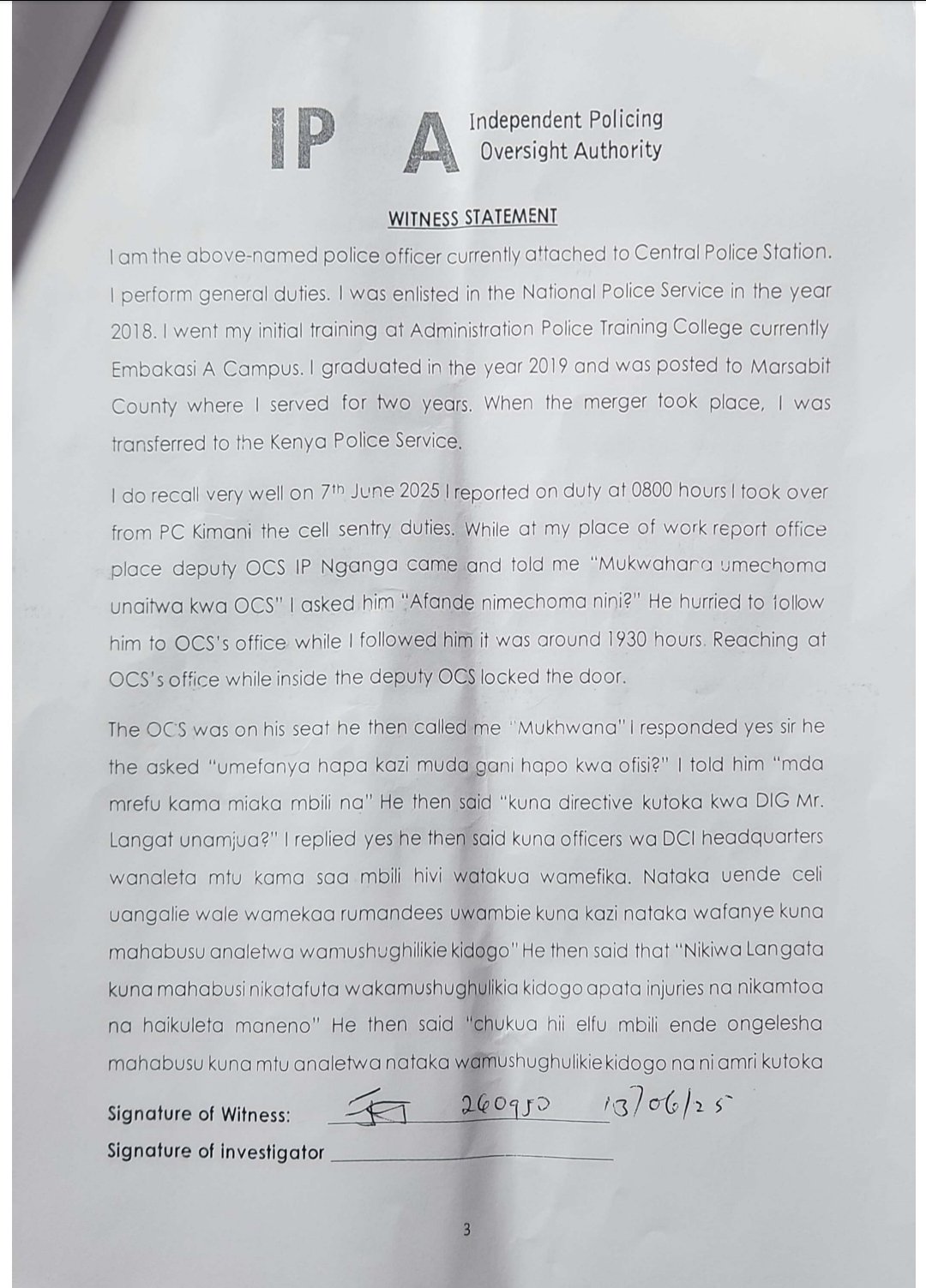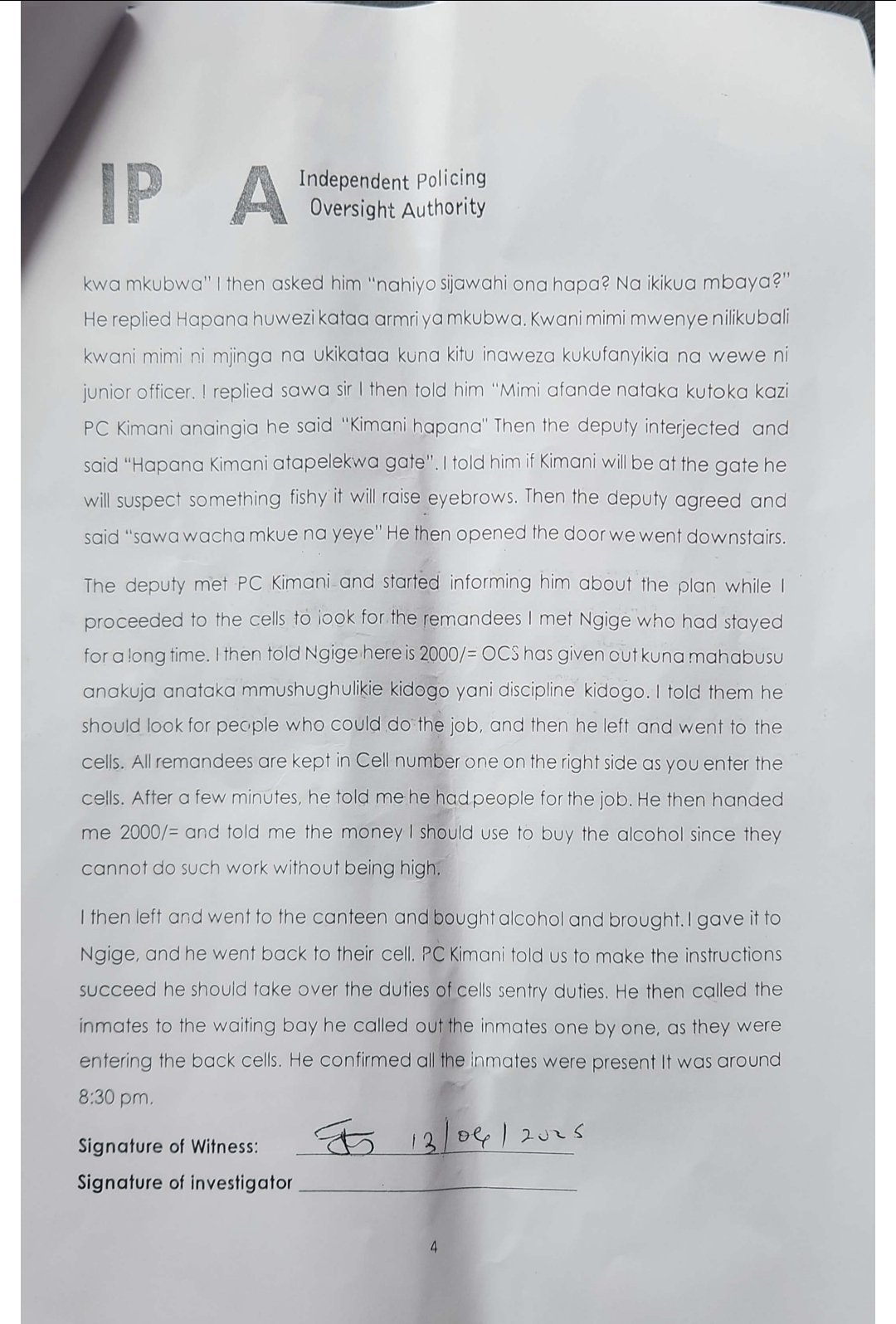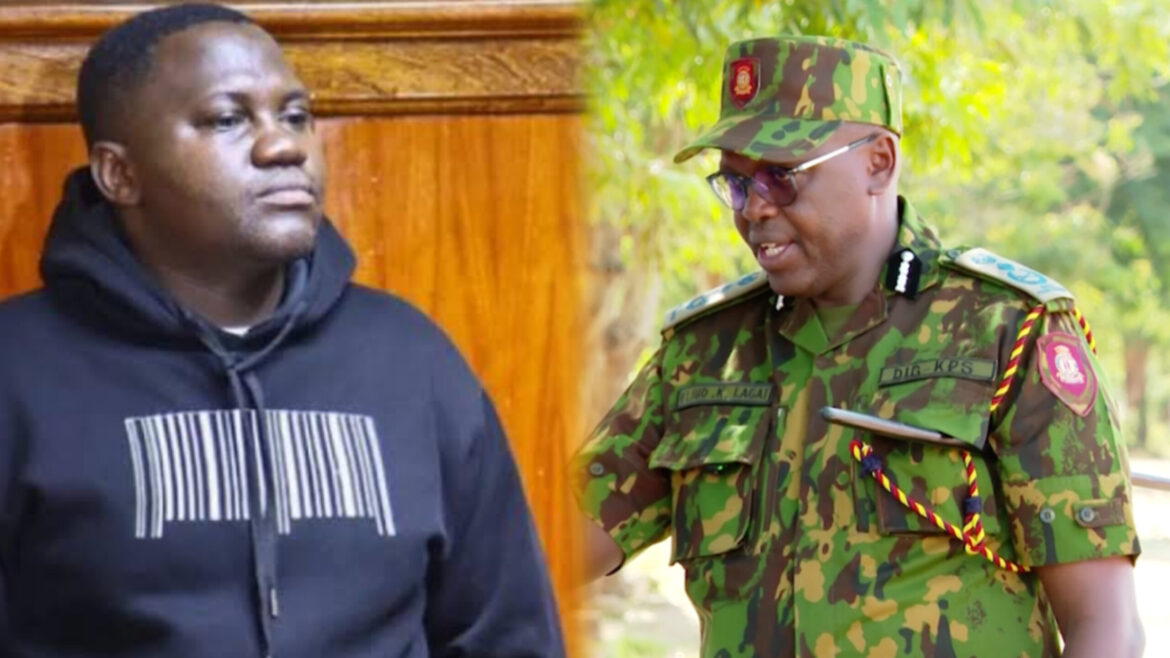A leaked police statement has revealed a coordinated attempt to cover up the death of political blogger Albert Ojwang, casting a harsh spotlight on top officials in the National Police Service and raising new concerns about police brutality and abuse of power.
The statement was recorded by Constable James Mukhwana and submitted to the Independent Policing Oversight Authority.
In it, Mukhwana recounts being summoned by his superiors on June 7 and ordered to find remandees who would help “discipline” a new inmate. He was given 2,000 shillings to buy alcohol, which he says was intended to get the remandees drunk enough to carry out the task.

Statement from Constable Mukhwna to IPOA
According to Mukhwana, he was also told explicitly not to name Deputy Inspector General Eliud Lagat in the report. The officer states that the order to torture Ojwang came directly from Lagat, but those involved wanted to keep his name out of any official records.
“They told me not to mention Lagat in the report,” Mukhwana said, according to the televised testimony.
Ojwang, who was known for criticizing corruption and bad governance, died in custody under suspicious circumstances. Police initially claimed he died by suicide, but that version of events has been widely questioned.
The emergence of Mukhwana’s statement has further fueled public anger, especially on social media, where the hashtags #JusticeForAlbertOjwang and #ArrestEliudLagat have gained traction on X, formerly Twitter.

Page two of Constable Mukhwna statement to IPOA
The incident has also raised questions about the role of oversight bodies. Despite being in possession of the statement, IPOA has not taken public action against Lagat or any of the officers named. Critics say this points to a broader culture of impunity and institutional protection within the police service.
Ojwang’s death has now become a flashpoint in the national conversation about state repression and the dangers faced by young activists. Calls for the arrest and prosecution of Lagat and other implicated officers are growing louder by the day.
“This case is no longer about one man,” said a Nairobi-based human rights advocate. “It’s about whether our institutions can be trusted to hold power to account.”



